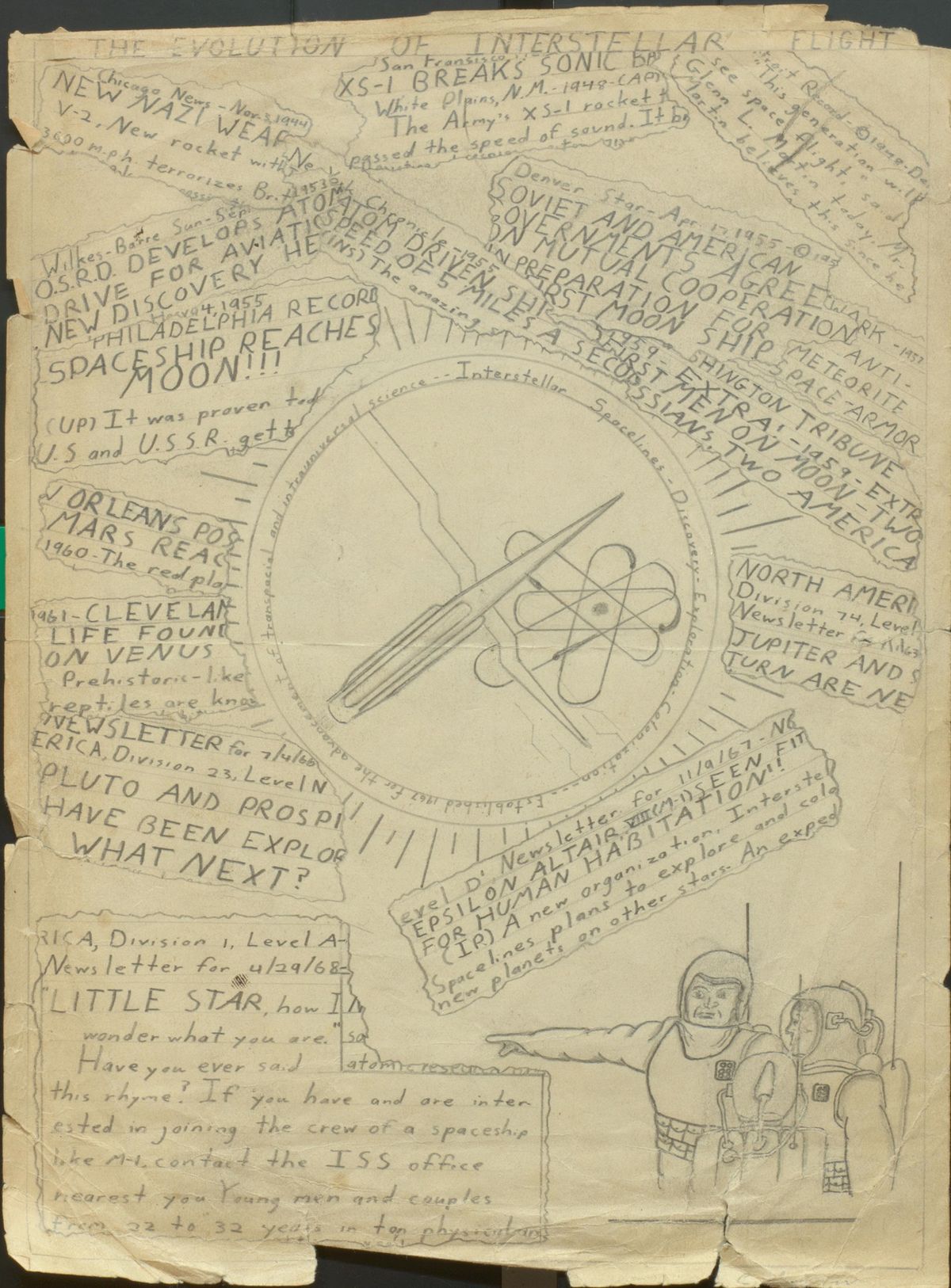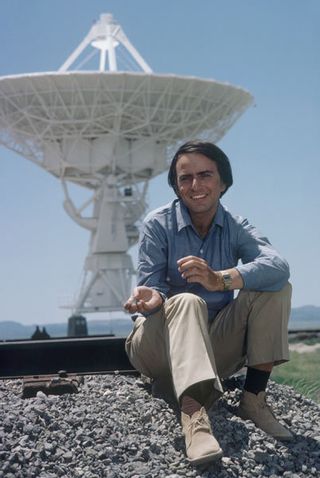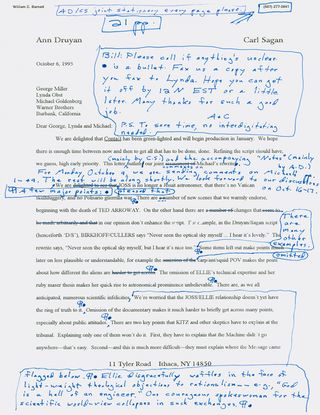'Family Guy' Creator Donates Carl Sagan Papers to Library of Congress

The creator of the hit animated series "Family Guy" has donated a vast trove of the late astronomer Carl Sagan's papers to the Library of Congress, officials announced today (June 27).
Writer, producer and director Seth MacFarlane helped the U.S. Library of Congress — the largest library in the world — obtain 800 boxes of material documenting Sagan's life and work. Macfarlane didn't actually have possession of the papers, according to media reports, but he provided the funds needed for the Library to get them.
The papers include book drafts, "idea files" on various subjects and Sagan's extensive correspondence. The material should also shed light on Sagan's childhood. It contains his birth announcement, his grammar-school report cards and handwritten notebooks documenting his youthful thoughts and scribbles, officials said.
"We are honored to preserve and make accessible to researchers the legacy of Carl Sagan, a man who devoted his life to the study of the universe," Librarian of Congress James Billington said in a statement.
"The Sagan papers are a rich addition to the Library’s already-outstanding collection of science manuscripts and other materials from such prominent figures as Benjamin Franklin, Thomas Edison, Alexander Graham Bell, Sigmund Freud, J. Robert Oppenheimer and E.O. Wilson," he added. [Creative Genius: The World's Greatest Minds]
Macfarlane is also working with some of Sagan's former collaborators — including his widow, Ann Druyan — on a successor to the 1980 TV miniseries "Cosmos," which Sagan hosted and co-wrote. The new 13-part series, called "Cosmos: A Space-Time Odyssey," will be hosted by astrophysicist Neil DeGrasse Tyson, and it's expected to air next year.

A science and outreach giant
Sign up for the Live Science daily newsletter now
Get the world’s most fascinating discoveries delivered straight to your inbox.
Sagan (1934-1996) specialized in planetary astronomy, making landmark contributions to NASA's Mariner, Pioneer, Apollo, Galileo, Viking and Voyager exploration programs. He was awarded medals for Distinguished Scientific Achievement and Public Service from NASA, the National Science Foundation and the National Academy of Sciences.
Sagan was also one of the 20th century's best-known popularizers of science, reaching millions of people with nonfiction books such as "The Demon-Haunted World: Science as a Candle in the Dark" (1996) and the Pulitzer-prize-winning "The Dragons of Eden: Speculation on the Evolution of Human Intelligence" (1977).
His science-fiction novel "Contact" (1985) became a bestseller, and it was turned into a 1997 feature film starring Jodie Foster. More than a billion people around the world have likely seen "Cosmos," which aired on PBS, Library of Congress officials said.
"Carl was the exemplar of the citizen scientist," Druyan said. "For him, the values of democracy and science were intertwined. I can think of no more fitting home for his papers than the nation’s library. Thanks to Seth, Carl’s prodigious life’s work will endure to awaken future generations to the wonders of the scientific perspective."

An inspiration
MacFarlane, the creative force behind the television shows "Family Guy," "American Dad!" and "The Cleveland Show," said Sagan's life and work affected him greatly.
"The work of Carl Sagan has been a profound influence in my life, and the life of every individual who recognizes the importance of humanity's ongoing commitment to the exploration of our universe," MacFarlane said. "The continuance of our journey outward into space should always occupy some part of our collective attention, regardless of whatever Snooki did last week."
The papers will be officially known as the Seth MacFarlane Collection of the Carl Sagan and Ann Druyan Archive.
The Library of Congress is the nation's research library. It dates back to 1800 and contains more than 151 million items, including more than 34.5 million cataloged books and 66.6 million manuscripts, officials said.
This story was provided by SPACE.com, a sister site to LiveScience. Follow SPACE.com on Twitter @Spacedotcom. We're also on Facebook and Google+.












